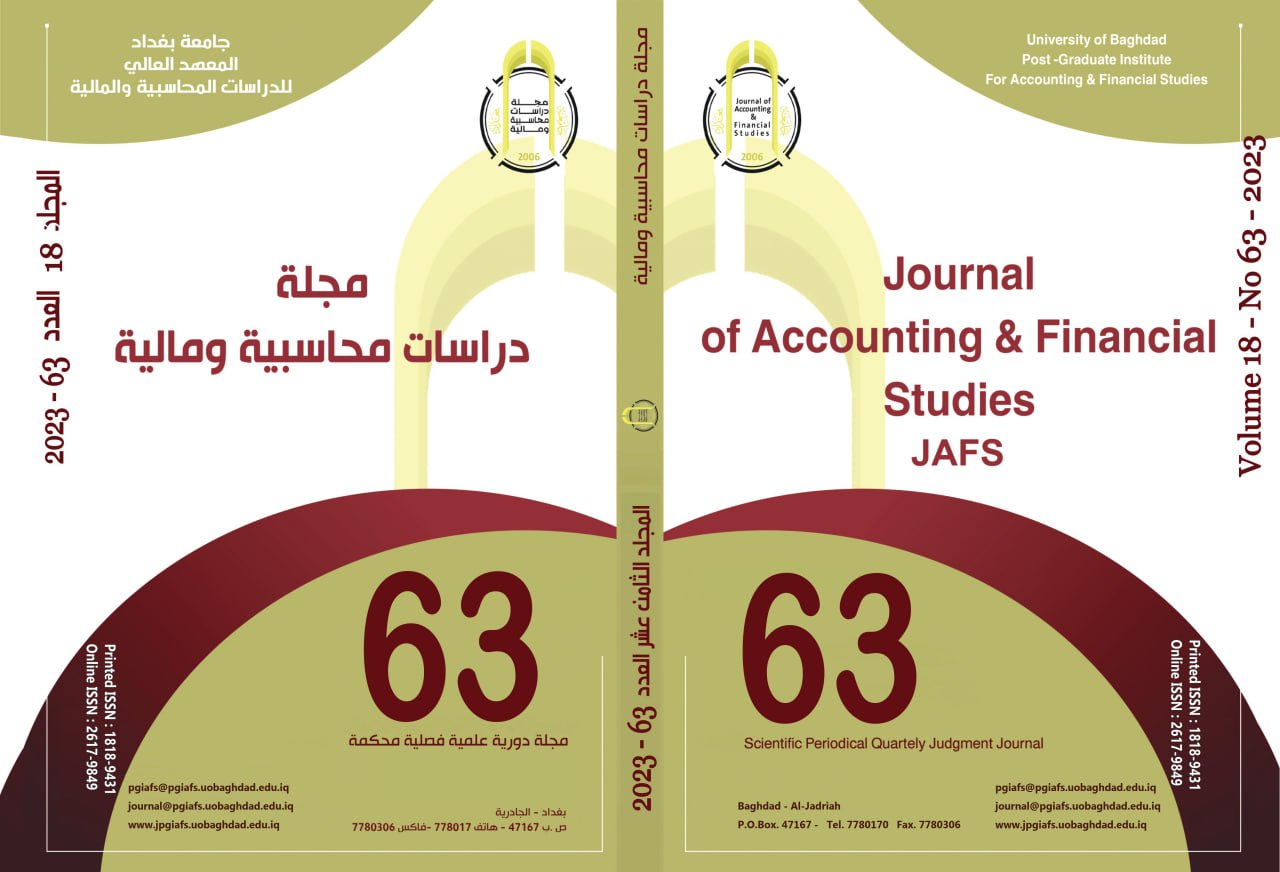The effect of progressive income tax on inflation in Iraq for the period from 1995 to 2020
applied research
Keywords:
progressive income tax, inflationAbstract
Inflation is one of the important issues that the economic authorities in all countries of the world care about, where the loss of money for its function is one of the most important and largest inflationary effects that this phenomenon leaves on the economy, and Iraq, like other countries, has had its share of the problem of inflation for a long time due to the circumstances that He went through it, whether it was the wars he fought or the economic blockade that was imposed on him in the nineties of the last century. Economically, the problem of inflation is addressed through the use of fiscal policy tools, including tax increases in order to absorb the cash surplus. Therefore, the research problem was an attempt to answer the following question And during the research period from 1995 to 2020: _ Do progressive income taxes affect inflation rates? In order to achieve the aim of the research, a descriptive-inductive method was chosen in presenting the theoretical foundations, while on the applied side, the analytical and quantitative approach was used to analyze the financial data obtained from the General Authority for Taxes and the Ministry of Planning.
The researcher reached a set of conclusions, the most important of which are:
1- The inflation rate began to rise significantly in Iraq in the nineties, especially after the decisions of economic sanctions, and the inflation recorded a remarkable increase, reaching its highest rate in 1995, then the rate decreased in 1996 after Iraq’s agreement with the United Nations (oil for food and medicine) and the problem of inflation increased after the events of 2003, due to the cessation of productive institutions from work and the imbalance between the economic sectors.
2- The inflation rate decreased in 2009, reaching 2.8%, due to the coordinated measures between monetary and fiscal policy in order to achieve economic stability and eliminate inflation and recession.
3- According to the results of the functions that appeared in the statistical analysis: Income tax had no significant effect on inflation, which indicates that the imposition of income tax is not considered a solution to this economic problem (inflation).
Downloads
Published
Issue
Section
License
The copyright is transferred to the journal when the researcher is notified of the acceptance of his research submitted for publication in the journal.



